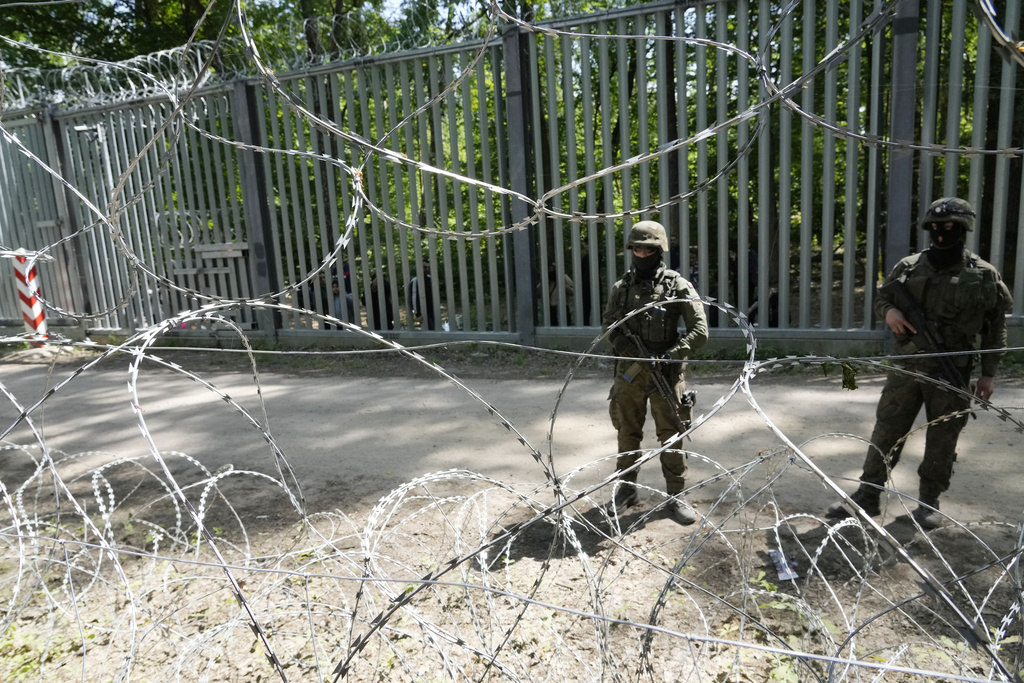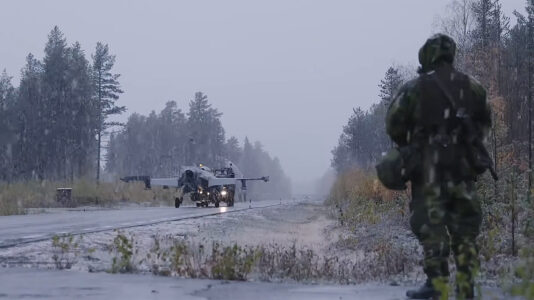Polish Interior Minister Tomasz Siemoniak has said that the migrant pressure on the Poland-Belarus border has doubled since last year, leaving Poland struggling to cope with the migrant surge even as the U.S. administration steps in to provide support.
Siemoniak told Polish Radio that the increase in border pressure is a political decision by Minsk and Moscow, stating that some 90 percent of the trespassers have Russian visas.
“They are being used cynically by both regimes, Belarusian and Russian, as an element of attack on Poland,” he said, adding “the rules of engagement will be changed” to cope with the crisis.
“Riot police units will be brought in, and border guards and soldiers will be trained to deal with aggressive crowds. We will not allow Polish soldiers to be targets of brutal acts,” Siemoniak said.
A Polish Border Guard officer has been hospitalized with head injuries after being struck by a branch during an attempt by a group of illegal migrants to forcefully cross the border from Belarus. The incident occurred early in the morning on June 3, near the eastern Polish town of Białowieża. The border guard’s life is not in danger. According to the border authority, the attack took place around 4 a.m. when a group of around 10 aggressive individuals threw stones and thick branches at Polish officers, while some also used pepper spray.
This incident is part of a disturbing trend of increasing aggression at the border. Last week, a soldier was stabbed and hospitalized with serious injuries, while two other Border Guard officers were also injured in separate attacks.
These assaults have prompted Prime Minister Donald Tusk to announce the creation of an additional buffer zone along the border with Belarus, the details of which are being finalized by the interior ministry.
Meanwhile, statistics from the Border Guard reveal a significant rise in attempts to illegally cross the border from Belarus into Poland. Since the beginning of May, there have been around 7,500 attempts, compared to 3,400 in April. This year alone, nearly 17,000 such attempts have been recorded.
The United States has expressed strong support for Poland in the face of increasing Russian hybrid attacks, even as the U.S. southern border remains wide open and Biden has allowed an estimated 10 million migrants into the country, representing one of the largest security threats in U.S. history.
“We’re staying in very close touch with our Polish allies and partners and making sure that they have what they need,” U.S. National Security Council spokesman John Kirby said during a press briefing at the Foreign Press Center in Washington.
Kirby addressed a series of incidents in Poland and echoed Polish Foreign Minister Radosław Sikorski’s concerns about Poland being the target of a “hybrid operation.”
Kirby highlighted America’s commitment to monitoring the situation closely and supporting Poland. “We’re watching these issues with great concern,” he said. “And certainly, I think you can imagine we’re staying in very close touch with our Polish allies and partners.”
When questioned about when these actions might necessitate a NATO response, Kirby noted that such decisions are made collectively by the Western military alliance; he added that there is currently no active discussion regarding invoking Article 5 of the NATO treaty, which would trigger military solidarity with a member state under attack.






